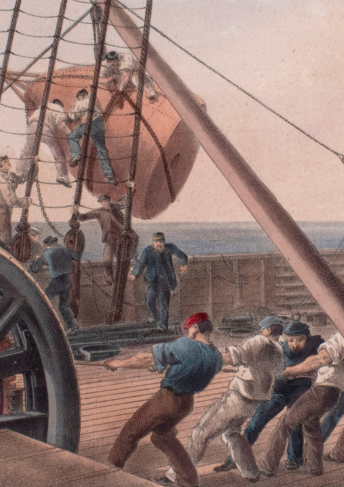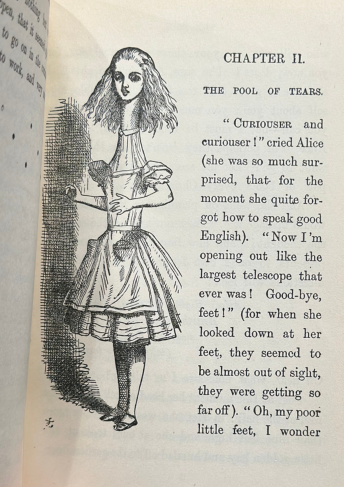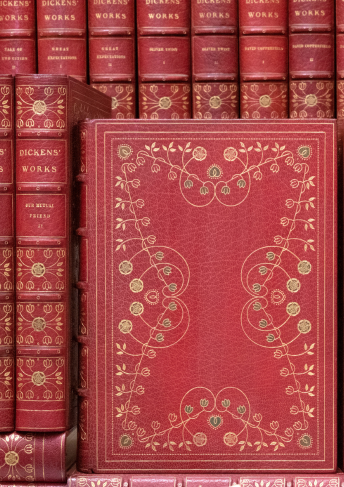The First Grand Tour, One of the Great English Literary Curiosities
Coryats crudities; hastily gobled up in five moneths travells in France, Savoy, Italy, Rhetia co[m]monly called the Grisons country, Helvetia aliàs Switzerland, some parts of high Germany, and the Netherlands; newly digested in the hungry aire of Odcombe in the county of Somerset, & now dispersed to the nourishment of the travelling members of this kingdome.
London: printed by W[illiam] S[tansby for the author], 1611.
Price: $18,500.00
About the item
First edition. Engraved title by William Hole featuring portrait bust of author surrounded by emblematic figures, four additional engraved plates (2 folding) and 2 engravings in text also by Hole, full-page woodcut badge of the Prince of Wales. [196], 364, [23], 366-393, [23], 395-398, 403-655, [51] pp. Letterpress title: "Three Crude Veines are Present in This Booke...". With errata leaf; separate title for "Posthuma fragmenta poematum georgii coryati". 4to. The First Grand Tour, One of the Great English Literary Curiosities. Full chestnut levant, boards tooled with border rules in gilt and blind about a central field, leafy corner ornaments in gilt, false straps in black and blind, spine titled in gilt, a.e.g. by Sangorski & Sutcliffe. Neatly rebacked preserving spine. Bookplate. Engraved title shaved at top, clock plate trimmed at foot; paper repair to blank lower corner margin of 3C8. Near fine (faintest traces of rubbing along bottom edge of boards. ESTC S108716; STC 5208 Pforzheimer 218; Keynes, Donne 70; Charles Beirouti, "A Backpacker in the Age of Shakespeare: Thomas Coryate at the Court of the Mughal Emperor", MEMOs Medieval and Early Modern Orients website, 2021; Bruce Thomas Boehrer, The Fury of Men's Gu.
Item #346399
In 1608 Thomas Coryate, something of an unofficial court jester in the house of Henry, Prince of Wales, undertook a journey across the continent, much of it by foot, which established precedence for the Grand Tour that would become a matter of ritual for Britians of generations to come. Coryate's idiosyncratic account of his travels remains an important work of early English literature; "intended to encourage courtiers and gallants to enrich their minds by continental travel, [it] contains illustrations, historical data, architectural descriptions, local customs, prices, exchange rates, and food and drink" (ODNB).
"There probably has never been another such combination of learning and unconscious buffoonery as is here set forth. Coryate was a serious and pedantic traveller who in five months toilsome travel wandered ... over a large part (by his own reckoning 1,975 miles) of western Europe. His adventures probably appeared to his contemporaries as more ridiculous than exciting, but at this remove his chronicle by its very earnestness provides an account of the chief cities of early seventeenth century Europe which is at least as valuable as it is amusing" (Pforzheimer).
The narrative is preceded by an impressive number of panegyrics by the London literati, including Ben Jonson, George Chapman, John Donne, Thomas Campion, and many others, solicited by Corayte as a way of demonstrating to booksellers the saleability of the work. These lyrics mock as much as they pay tribute, however, and "during the winter of 1610-1611, this baiting of Coryate was apparently the talk of all literary London" (ibid).
FASCINATING AND WITHOUT EQUAL.

![Coryats crudities; hastily gobled up in five moneths travells in France, Savoy, Italy, Rhetia co[m]monly called the Grisons country, Helvetia aliàs Switzerland, some parts of high Germany, and the Netherlands; newly digested in the hungry aire of Odcombe in the county of Somerset, & now dispersed to the nourishment of the travelling members of this kingdome](https://jamescumminsbookseller.cdn.bibliopolis.com/pictures/346399_2.jpg?width=768&height=1000&fit=bounds&auto=webp&v=1668634213)
![Coryats crudities; hastily gobled up in five moneths travells in France, Savoy, Italy, Rhetia co[m]monly called the Grisons country, Helvetia aliàs Switzerland, some parts of high Germany, and the Netherlands; newly digested in the hungry aire of Odcombe in the county of Somerset, & now dispersed to the nourishment of the travelling members of this kingdome](https://jamescumminsbookseller.cdn.bibliopolis.com/pictures/346399_3.jpg?width=768&height=1000&fit=bounds&auto=webp&v=1668634362)
![Coryats crudities; hastily gobled up in five moneths travells in France, Savoy, Italy, Rhetia co[m]monly called the Grisons country, Helvetia aliàs Switzerland, some parts of high Germany, and the Netherlands; newly digested in the hungry aire of Odcombe in the county of Somerset, & now dispersed to the nourishment of the travelling members of this kingdome](https://jamescumminsbookseller.cdn.bibliopolis.com/pictures/346399_4.jpg?width=768&height=1000&fit=bounds&auto=webp&v=1668634411)
![Coryats crudities; hastily gobled up in five moneths travells in France, Savoy, Italy, Rhetia co[m]monly called the Grisons country, Helvetia aliàs Switzerland, some parts of high Germany, and the Netherlands; newly digested in the hungry aire of Odcombe in the county of Somerset, & now dispersed to the nourishment of the travelling members of this kingdome](https://jamescumminsbookseller.cdn.bibliopolis.com/pictures/346399_5.jpg?width=768&height=1000&fit=bounds&auto=webp&v=1668634501)
![Coryats crudities; hastily gobled up in five moneths travells in France, Savoy, Italy, Rhetia co[m]monly called the Grisons country, Helvetia aliàs Switzerland, some parts of high Germany, and the Netherlands; newly digested in the hungry aire of Odcombe in the county of Somerset, & now dispersed to the nourishment of the travelling members of this kingdome](https://jamescumminsbookseller.cdn.bibliopolis.com/pictures/346399_6.jpg?width=768&height=1000&fit=bounds&auto=webp&v=1668634618)


